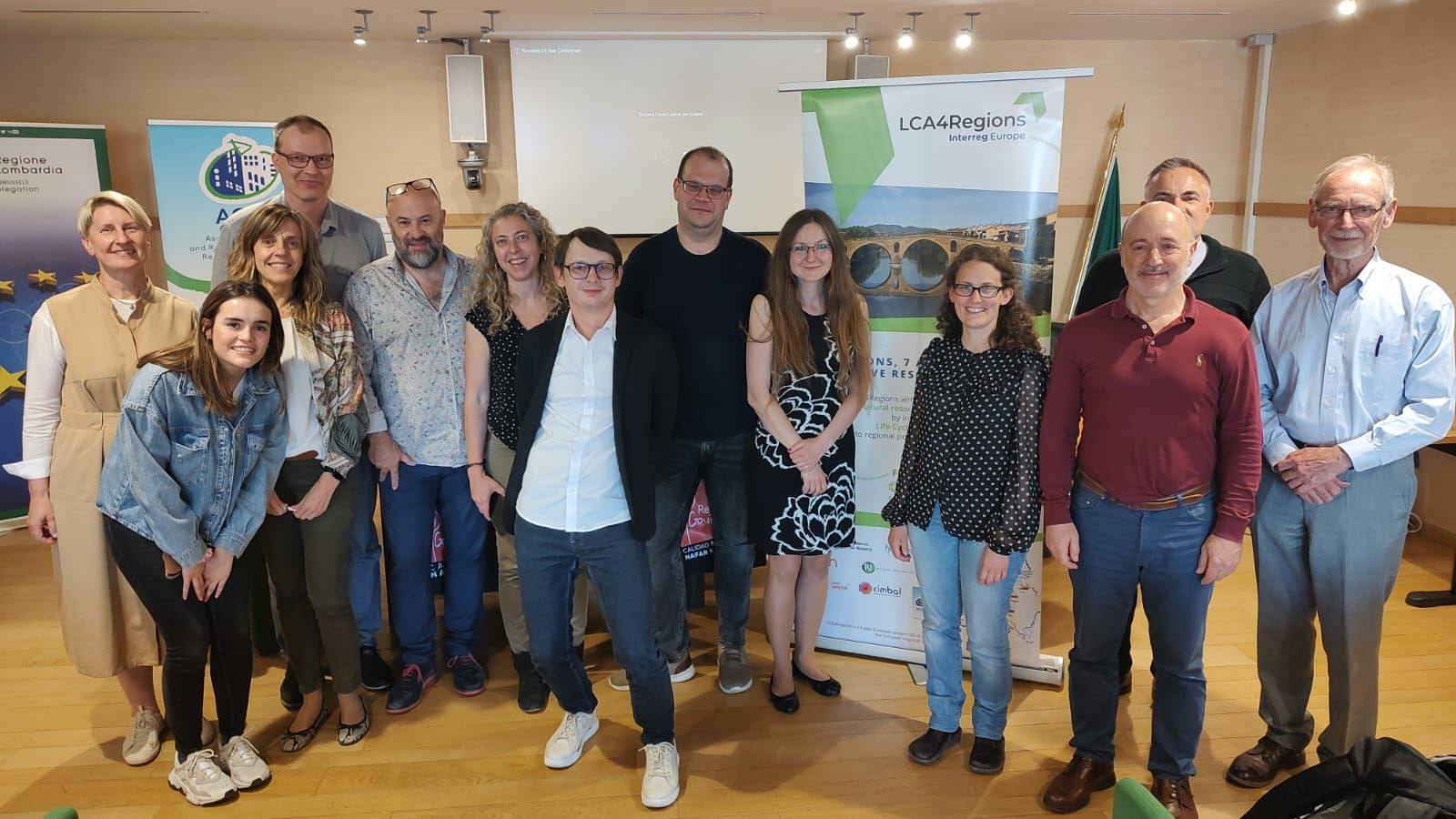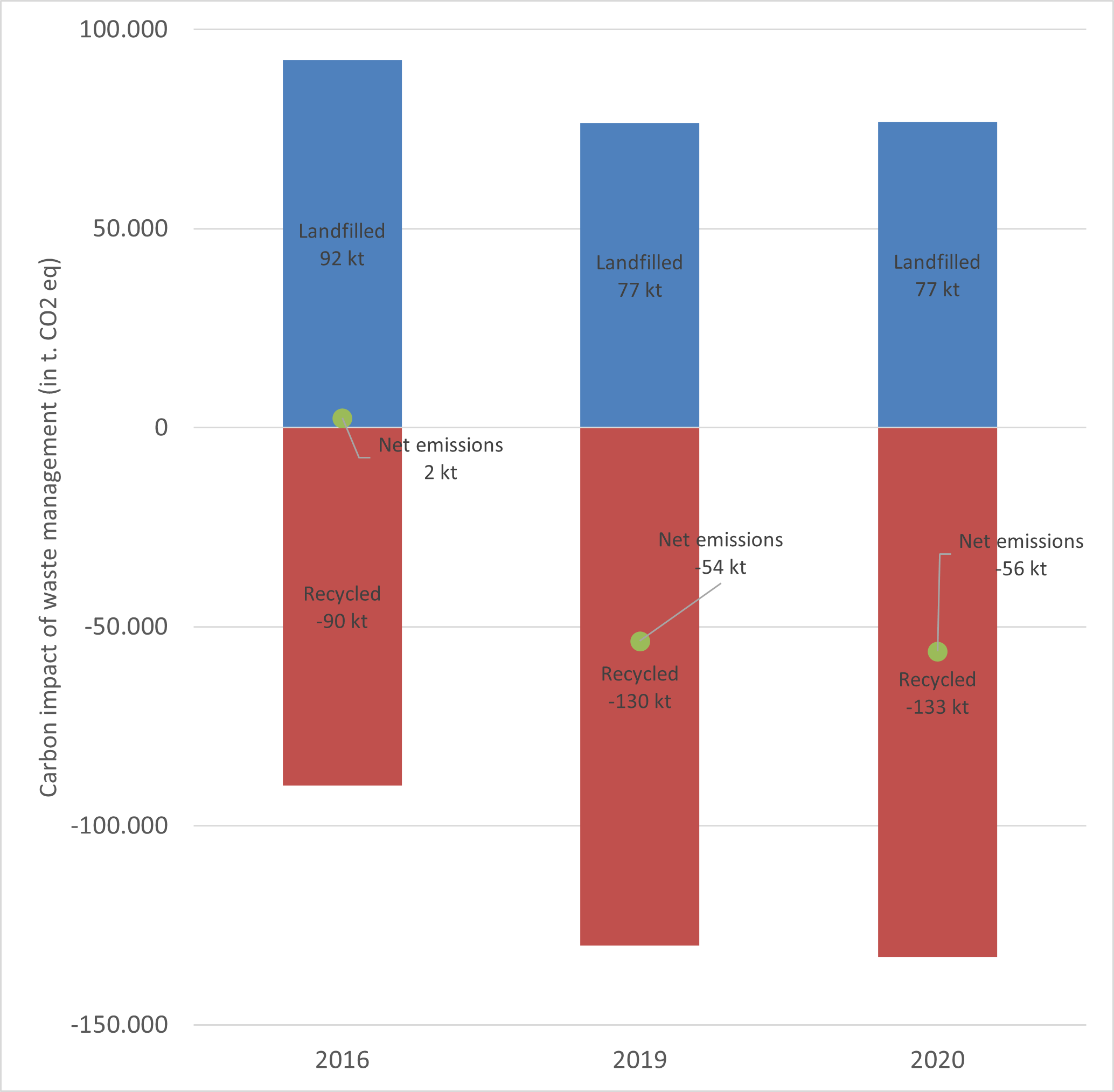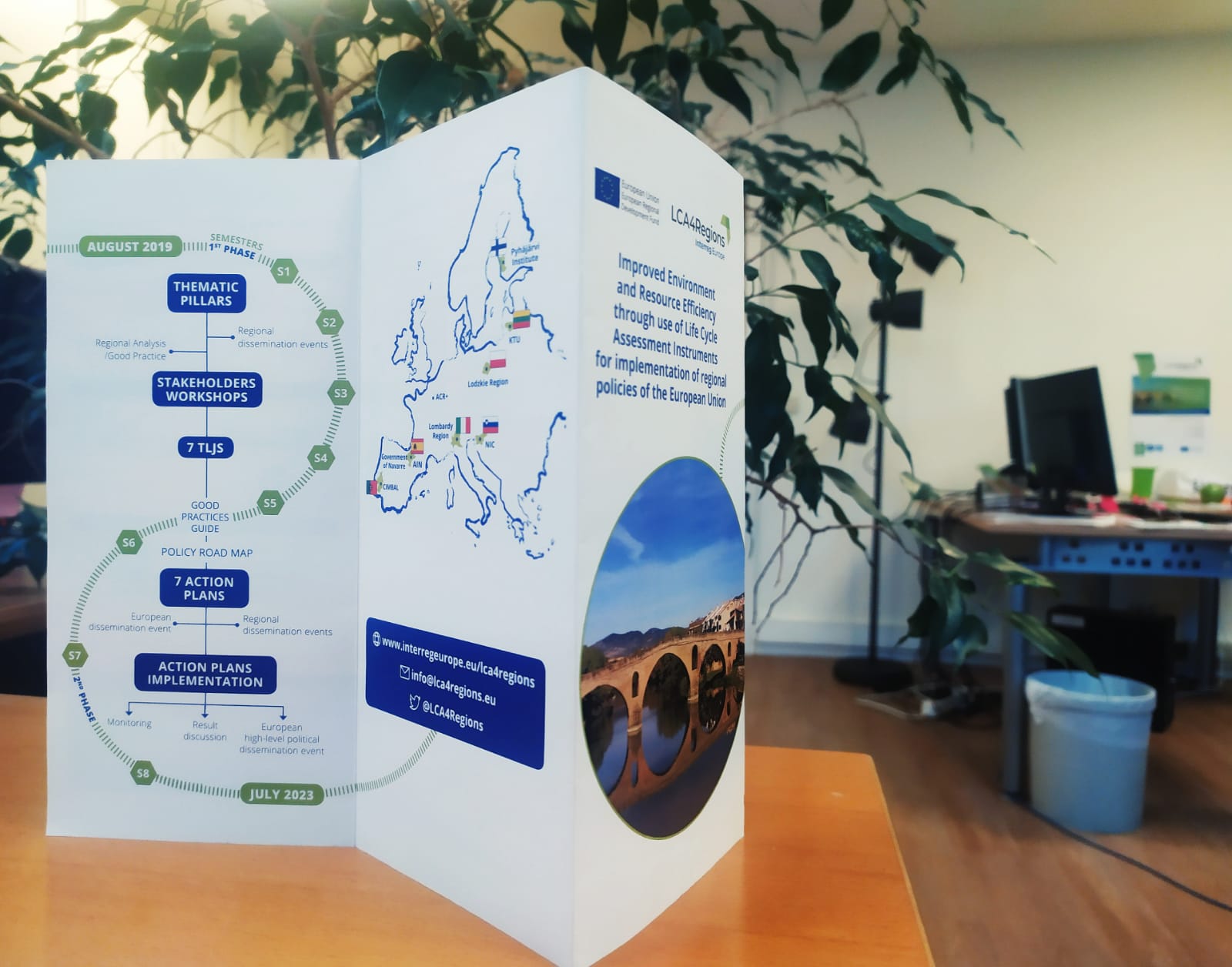On September 23, 2020, the Lodzkie Region organized the 2nd regional stakeholder meeting of the LCA4Regions project. The aim was to discuss and show opportunities offered by circular economy and the use of LCA in enterprises. This time, to take advantage of synergies with other circular economy projects, Lodzkie gathered in one place the stakeholders of 3 projects: LCA4Regions - Improved Environment and Resource Efficiency through use of Life Cycle Instruments for implementation of regional policies of the European Union (Interreg Europe), REPLACE - Development of the circular economy by improving the instruments of regional policy (Interreg Europe) and Local Government Center for Circular Economy - Łódzkie GREEN HUB (Regional Operational Program of the Lodzkie Region 2014-2020) to look at LCA as a common denominator of circular projects.
The meeting was held both virtually and on site and gathered over 20 stakeholders (universities, research institutions, regional authorities, SMEs, NGOs). Additionally, 6 invited experts participated in the meeting:
- Mr Piotr Barczak - coordinator of waste policy in the European Environmental Bureau. Specializes in air pollution and waste
- Ms Barbara Kozłowska, Ph.D., assistant professor at the Faculty of Process and Environmental Engineering, Lodz University of Technology. Member of working groups preparing Polish BREF-type reference documents in the field of waste management
- Mr Konrad Witczak, Ph.D. engineer - expert in the field of building technologies, teaching at Faculty of Building Physics and Building Materials of the Lodz University of Technology
- Mr Sebastian Czernik, MSc, engineer - coordinator for contacts with state administration and industry organizations ATLAS Group which is currently the largest domestic producer of construction chemicals in Poland
- Mr Konrad Gładyszewski, M.Sc., engineer, a young entrepreneur and scientist at the Lodz University of Technology and Ph.D. student of the Technical University in Dortmund. Co-creator of chemical drives for experimental vehicles
- Mr Bartłomiej Zgorzelski - founder and managing director of BZB Projekt - a design studio specializing in the analysis of procedural, administrative and technical risks for service and public investments in the field of infrastructure
The meeting was chaired by Mr Marcin Podgórski - representative of the Lodzkie Region, active for 25 years in shaping international relations, an expert in the field of regional policy development.
The first speaker was Ms Barbara Kozłowska, who pointed out that pro-environmental technologies, which initially met with great enthusiasm on the market (e.g. photovoltaic panels and electric drives in cars), are now evaluated more moderately after thorough LCA analyses. Not all new technology is completely emission-free.
Sebastian Czernik emphasized that a significant challenge is "closing" the product life cycle. The manufacturer cannot stop at environmental product declarations and the Cradle to Gate phase. It is essential to complete or reuse the product (Cradle to Grave).
Bartłomiej Zgorzelski presented his experiences from investment and tender processes in relation to LCA. The public investor is more inclined to consider LCA-based assessment methodologies or equivalent tools. An important role in the investment process is played by environmental requirements in the construction industry, set by market regulators.
Mr Piotr Barczak emphasized that circular economy should not be a simple reference to the recycling concept. Streams of materials and raw materials should remain in circulation for as long as possible, and waste streams should be minimized so as not to export environmental burdens outside the EU.
Referring to circular economy it was also pointed out that each group has slightly different interests and approaches - social, environmental and economic. Economic aspects are more important for entrepreneurs, while social and environmental for society and local governments. The challenge though is to find a common denominator.
Conclusions:
- LCA is the present and the future. Therefore it is important to disseminate the idea and approach of LCA and implement a simpler procedure for accessing LCA (e.g. by using tools such as environmental certificates), so that entrepreneurs do not perceive LCA as something unavailable and get used to using LCA in their activities
- When assessing the effects of LCA and the effectiveness of circular economy, it should be based on indicators that show measurable effects of actions and not follow the trend or fashion only
- The carbon footprint should be seen as one element, but not the only one, as it does not provide complete data; it is also worth following other indicators, e.g. biodiversity










